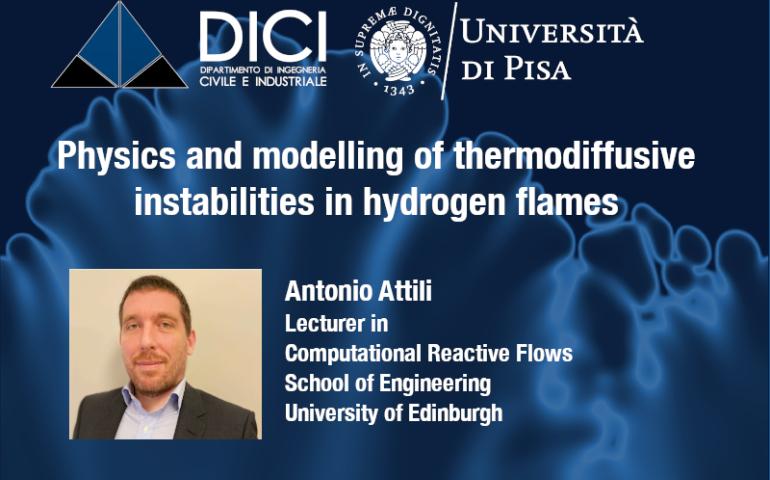Abstract
Premixed hydrogen flames are susceptible to thermo-diffusive instabilities, which manifest themselves with super-adiabatic temperatures and alternating regions of strong enhancement of local reactivity and extinction in highly curved regions of the flame surface. They are due to the high diffusivity of hydrogen and the high sensitivity of hydrogen combustion to the local flame and flow topologies. They lead to complex fractal patterns and up to a fivefold increase of flame speed in laminar conditions; in the turbulent regime, they interact synergistically with the flow field and cause even larger effects, contrary to the typical scenario in which turbulence damps differential diffusion effects. In this talk, a comprehensive investigation of instabilities in laminar and turbulent flames based on large-scale Direct Numerical Simulations (DNS) is presented and a model for Large Eddy Simulation is discussed.
Bio
Antonio Attili is a Lecturer in Computational Reactive Flows at the University of Edinburgh. He obtained a Master degree in Aerospace Engineering and a PhD in Theoretical and Applied Mechanics from Sapienza University of Rome. After the PhD, he worked in KAUST, Saudi Arabia, and then led the Reactive Flow Physics Simulation group in the Institute for Technical Combustion at RWTH Aachen in Germany. Antonio’s research interests are in turbulence and combustion, soot formation in flames, aerosols, combustion instabilities, rocket propulsion, numerical methods, and massively parallel computing. He uses large-scale simulations to investigate the physics of multi-physics and multi-scale phenomena and develop reduced models for industrial applications. He is also interested in big-data analysis and the application of machine learning to fluid mechanics and recently edited a book on “Analysis of Combustion DNS Data”. His work on hydrogen and combustion instabilities has been recently recognised with the distinguished paper award at the International Combustion Symposium and the Sugden Award awarded by the British Section of The Combustion Institute.







